Reading proficiency Normal Alphabet Worksheets for Ages 5-6
6 filtered results
-
From - To
Enhance your child's reading skills with our "Reading Proficiency Normal Alphabet Worksheets" designed specifically for ages 5-6. Each engaging worksheet focuses on letter recognition, phonics, and vocabulary development to foster early literacy skills. Our colorful, interactive activities make learning fun, helping young learners become confident readers. Children will practice identifying letters, matching words, and developing critical thinking as they complete different exercises. With easy-to-follow instructions, these worksheets are perfect for use at home or in the classroom. Equip your child with the foundational reading skills needed for academic success while nurturing a love for learning. Start their reading journey today!
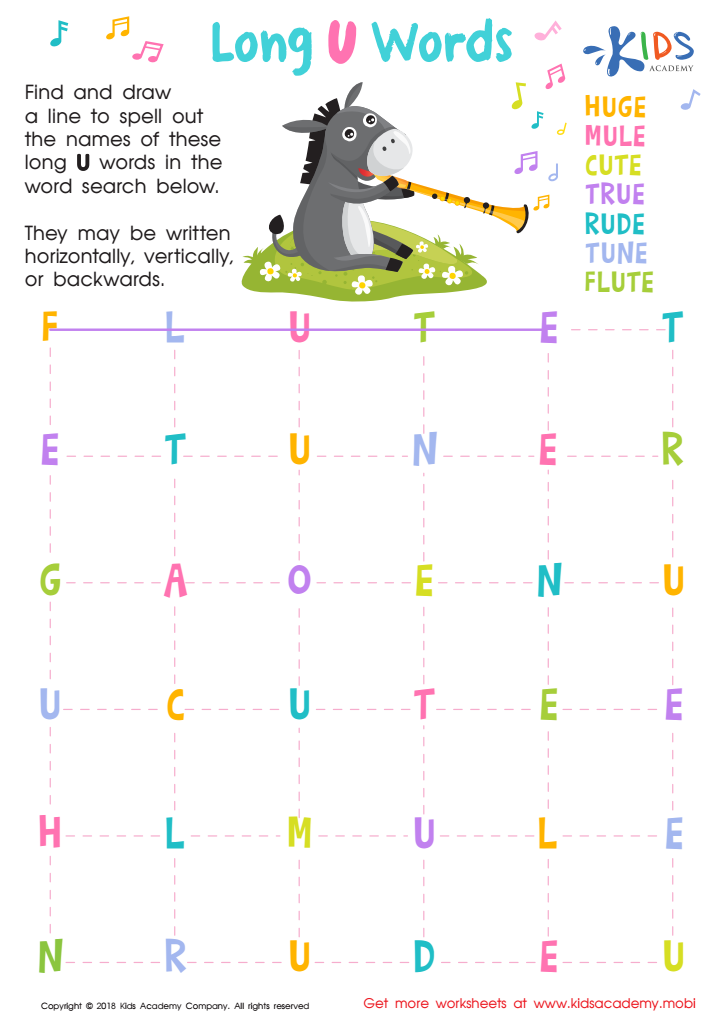

Long /u/ Words Worksheet
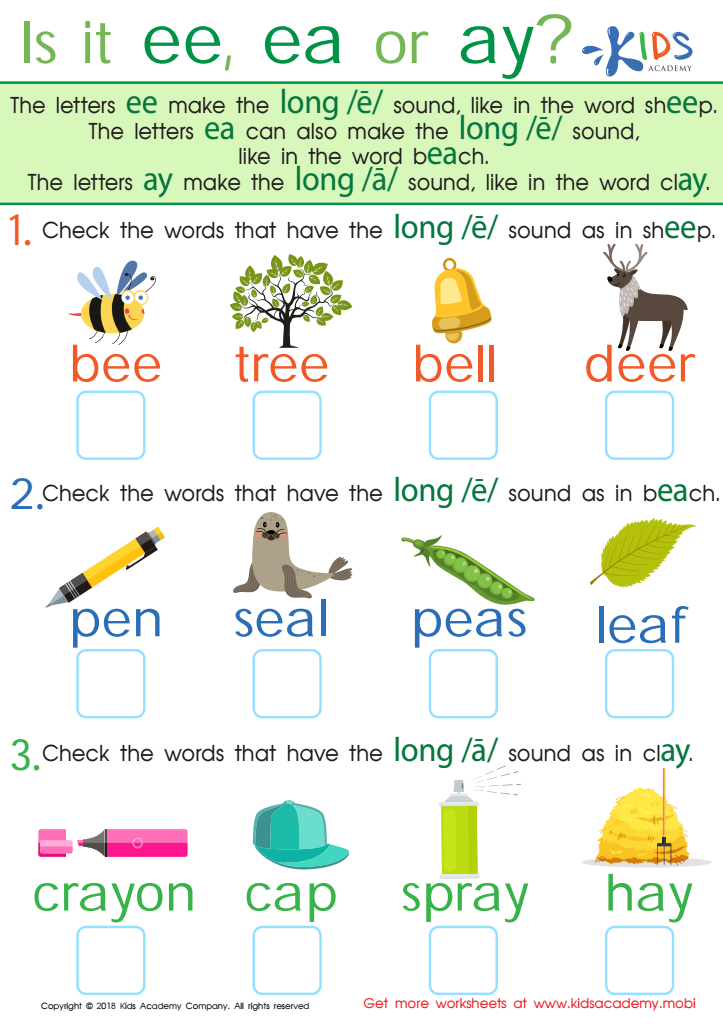

Is It EE, EA, or AY? Worksheet
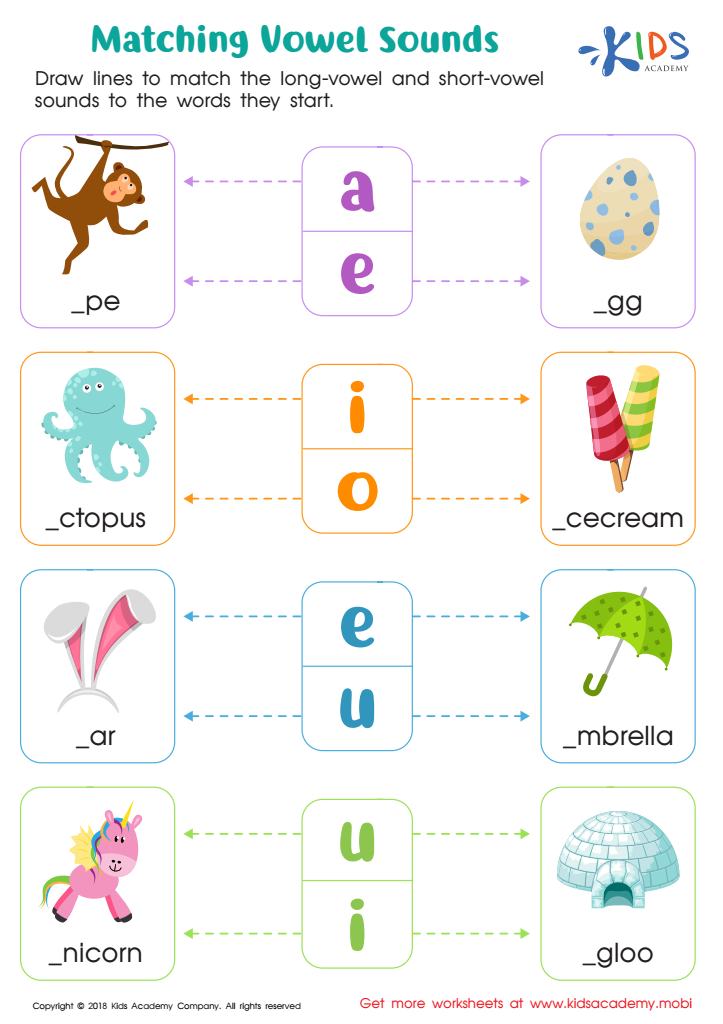

Matching Vowel Sounds Worksheet


Long and Short U Worksheet
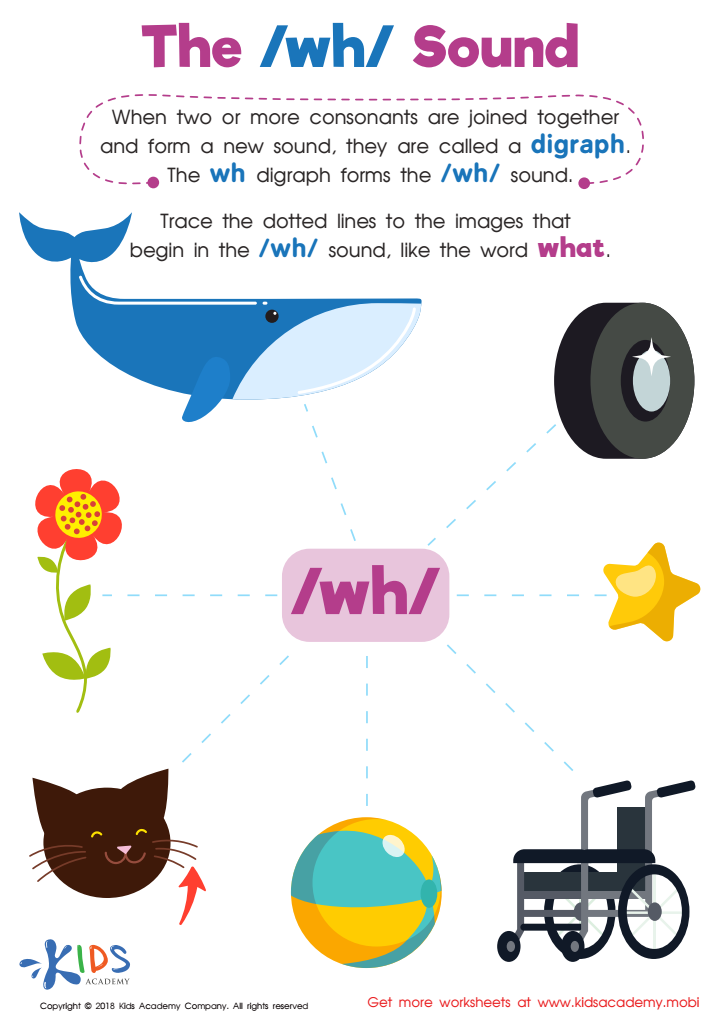

The /wh/ Sound Worksheet
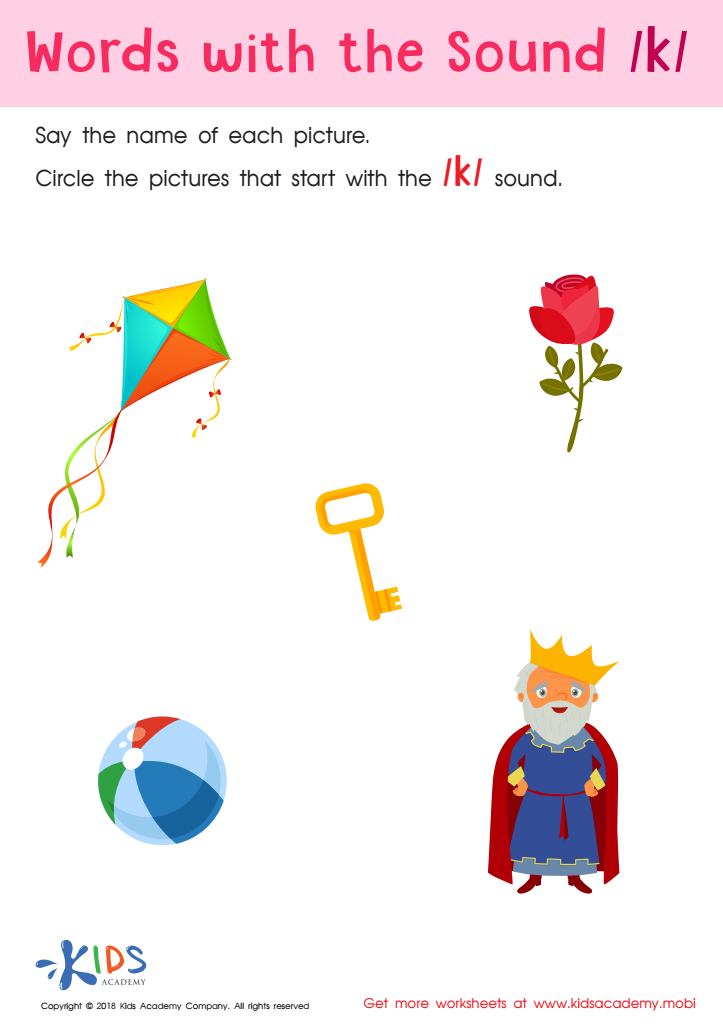

Words with sound k Reading Worksheet
Reading proficiency at ages 5-6 is crucial for children's overall development and future academic success. By fostering strong reading skills early, parents and teachers lay the groundwork for a child's ability to comprehend information, express ideas, and communicate effectively. Proficiency in reading not only enhances vocabulary but also boosts cognitive skills, as children learn to think critically and solve problems.
Additionally, early reading experiences cultivate a love for books and learning, contributing to a lifelong appreciation for literature. Children who are proficient readers often perform better in all subjects, as they can understand and engage with content more effectively. Moreover, reading proficiency at this age helps build self-confidence, which is essential for navigating social and educational challenges.
Parents and teachers play a vital role in nurturing reading abilities by providing a supportive environment that encourages exploration and interaction with text. Engaging children in storytelling and reading aloud creates meaningful connections between words and concepts. Consequently, emphasizing reading proficiency in early education fosters not only individual growth but also a culture of literacy that benefits society as a whole, making it crucial for adults involved in a child's education to prioritize and support this foundational skill.

 Assign to My Students
Assign to My Students















